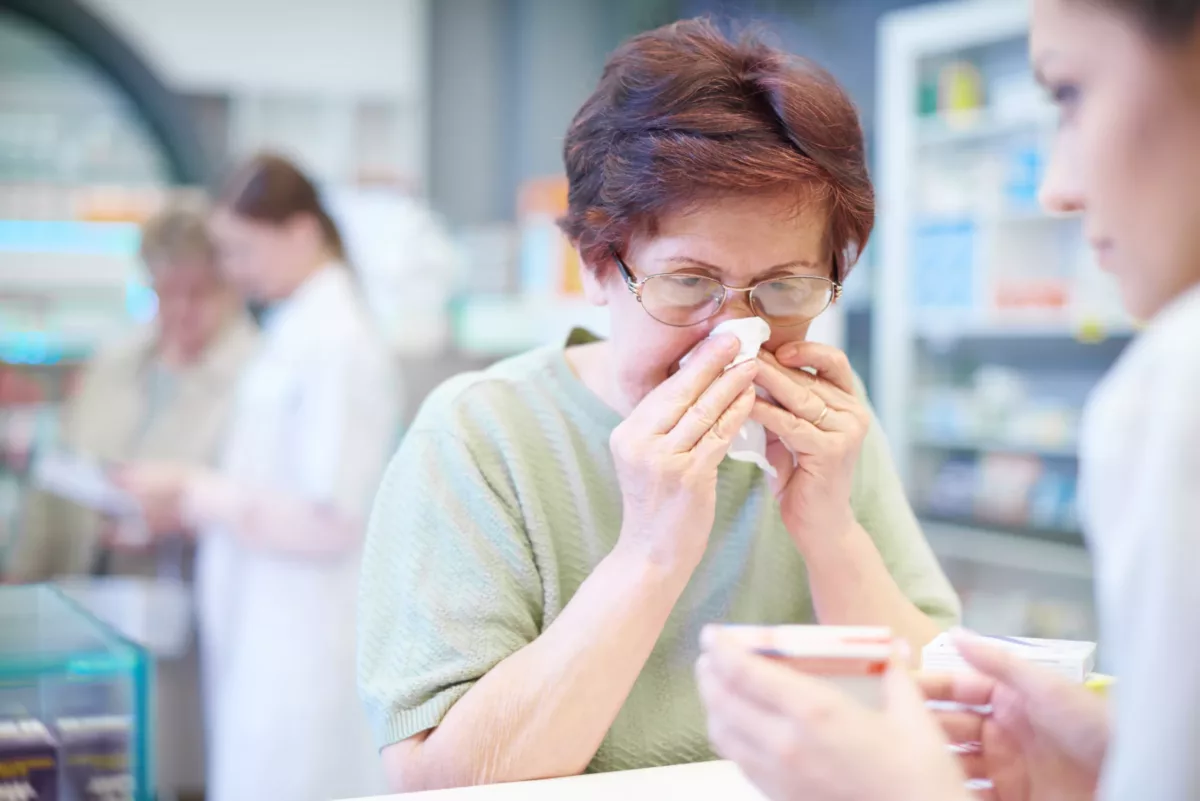A reaction of the immune system to a medicine is called a drug allergy. While any supplement, herbal product, over-the-counter (OTC) medicine, and prescription medicine can trigger a drug allergy, it usually occurs with specific medicines only.
Rash, fever, and hives are the most common drug allergy symptoms. However, this condition may cause serious health problems, including a life-threatening condition called anaphylaxis.
It is important to know that drug allergies are not side effects of medicines. In most cases, adverse reactions to medicines are listed on their labels. Furthermore, drug allergy is also different from drug toxicity. When a person takes high doses of a medicine, drug toxicity may occur.
Symptoms
In most cases, drug allergy symptoms occur within 60 minutes after taking the medication. However, other symptoms, such as rash, may occur days or weeks later. Check below for some drug allergy symptoms:
- Fever
- Swelling
- Shortness of breath
- Runny nose
- Itchy and watery eyes
- Wheezing
- Itching
- Hives
Anaphylaxis Symptoms
Get emergency help if this life-threatening condition occurs. While anaphylaxis occurs quite rarely, it may be fatal. Check below for some symptoms:
- Dizziness
- Lightheadedness
- Hypotension (low blood pressure)
- Slow or fast heartbeats
- Seizures
- Loss of consciousness
- Vomiting
- Nausea
- Diarrhea
- Abdominal (belly) cramps
- Breathing problems
Other Health Problems Caused by Drug Allergy
There are some conditions that may occur days or even weeks after exposure to the medication that causes drug allergies. In any case, the following conditions occur quite rarely. For example:
- Serum sickness that causes fever, joint pain, rash, swelling, and nausea
- Drug-induced anemia – This is a disease that causes a reduction in red blood cells. The most common symptoms include irregular heartbeats, shortness of breath, and fatigue (extreme tiredness).
- DRESS (drug rash with eosinophilia and systemic symptoms) – It causes swollen lymph nodes, general swelling, increased levels of white blood cells, rash, and hepatitis infection.
- Nephritis (inflammation in the kidneys) – This condition usually causes the following symptoms. For example general swelling, confusion, blood in the urine, and fever.
People who have mild symptoms should contact their healthcare providers as soon as possible. Go to the nearest emergency room or call 911 in the U.S. if you experience severe symptoms or think you have anaphylaxis after using the medication.
Causes
Drug allergies occur when immunity mistakenly identifies a medicine as a harmful substance (such as bacteria or viruses). However, if it identifies the medicine as something harmful, it begins to produce antibodies that attack this medicine and cause allergy symptoms. Sometimes, a drug allergy may occur until repeated exposures to that medicine occur. In other words, the next time you take the medicine, the immune system will begin to attack it, causing allergic reactions.
Sometimes, people are not aware of their first exposure to the medicine because even a small amount of medicine in the food supply may cause the immune system to produce antibodies.
Experts believe that certain medications may bind directly to certain immune system cells (T cells), causing the release of certain chemicals that lead to allergic reactions. This may occur even if you are taking a specific medicine for the first time.
Medicines Usually Linked to Allergies
While all medications may cause an allergy, the following ones are more commonly linked with allergies. For example:
- Antibiotics (such as Penicillin)
- Other-the-counter (OTC) pain relievers (including Aspirin, Ibuprofen, Naproxen Sodium, and others)
- Chemotherapy drugs (medicines used to treat cancer)
- Medications used to treat autoimmune diseases (such as rheumatoid arthritis)
Nonallergic Medicine Reactions
In some cases, people may develop a condition called nonallergic hypersensitivity reaction or pseudoallergic drug reaction. It causes symptoms similar to a drug allergy, but they are not caused by an immune system reaction. Check below for some medications usually associated with this condition:
- Opiates (used to treat severe pain)
- Local anesthetics
- Aspirin
- Radiocontrast media (also known as dyes used in imaging tests)
Risk Factors
Anyone may develop a drug allergy. However, there are some factors that may elevate your risk of developing it. For example:
- Medical or family history of drug allergies
- Other allergies (including hay fever, food allergy, and others).
- High doses of medicine used for long periods
- Certain infections are usually associated with drug allergy reactions (such as HIV infection, Epstein-Barr virus infection, and others)
How to Prevent Drug Allergy?
Commonly, to prevent drug allergy, you should interrupt using the medication that causes problems. Check below for some tips that may help protect yourself:
- Talk with your healthcare professional about allergic reactions you experience.
- You should also wear a medical alert bracelet that helps identify medicines that cause allergies.
Diagnosis
It is very important to have an accurate diagnosis. Moreover, some research has shown that drug allergies may be misdiagnosed and that patients may report drug allergies that were never confirmed. In addition, misdiagnosed drug allergies may lead to the use of less appropriate or more expensive medications.
In most cases, physicians perform a physical examination and ask some questions about your symptoms, medicines you are using, and others to diagnose the condition. They may also perform some tests to confirm the condition and rule out others that cause similar symptoms. For example:
- Skin test – During this test, doctors will administer a small amount of medicine that is suspected to cause a drug allergy to the skin. If you experience within a few minutes red, itchy, and raised bumps, it indicates a drug allergy. However, a negative outcome does not mean drug allergies are not possible. It usually means that you do not have allergic reactions to the medicine administered to your skin.
- Blood tests – These tests are done to exclude other diseases that cause similar symptoms.
Treatment
In most cases, treatment for drug allergies is divided into two categories, such as treatment for present symptoms of the allergy and treatment that allows taking allergy-causing medications when it is necessary.
Treatment for Present Symptoms
These include:
- Stop using the allergy-causing medicine – If doctors identify the exact medicine that causes allergy, they may recommend reducing the dose or even stopping it. If this medicine is necessary, physicians may recommend drug desensitization or change medicine.
- Antihistamines – Physicians may prescribe these medicines or recommend an over-the-counter antihistamine (such as Diphenhydramine) to block the immune system reaction.
- Corticosteroids – These medicines are available as a shot or taken orally (tablets or capsules). Corticosteroids are used to lessen symptoms linked with severe allergic reactions.
- Anaphylaxis treatment – This life-threatening condition requires an immediate shot of Epinephrine. Moreover, people who have anaphylaxis need to stay several days in the hospital to maintain blood pressure and support breathing.
Treatment for Allergy-causing Medications
Usually, physicians do not prescribe allergy-causing medications unless it is needed in people with drug allergies. However, if the suspect medication is necessary, you should take it under medical supervision, but if the medicine causes severe or life-threatening symptoms, doctors will try to find another medicine next time.
What is Drug Desensitization?
This treatment involves taking very small doses of the allergy-causing medicine and then increasing the dose gradually every 15-30 minutes. Therefore, if you do not have allergic reactions over a few hours or days, you can continue the treatment. In addition, this treatment option is called drug desensitization.
Frequently Asked Questions
What are the primary symptoms of drug allergy?
For example:
- Itching
- Skin rash or hives
- Swelling
- Trouble breathing
- Wheezing
- Anaphylaxis (a life-threatening condition that requires immediate treatment in the hospital)
If any of the previous symptoms occur, immediately contact your healthcare provider.
What is the most common drug people are allergic to?
Mostly, people develop a drug allergy to an antibiotic called Penicillin. However, there are a lot of people who are allergic to over-the-counter (OTC) pain relievers such as Aspirin, Ibuprofen, and others.
What are the potential complications of drug allergy?
People with this condition may experience some complications, especially if they ignore the symptoms and do not get treatment. For example:
- Anaphylaxis
- Serum sickness
- Anemia
- Kidney inflammation
Ask your healthcare provider if you have additional questions.




